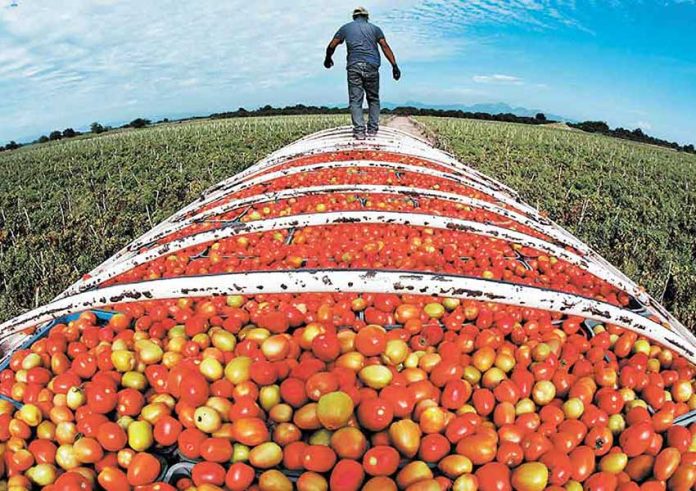The United States intends to withdraw from a six-year-old trade agreement with Mexico on tomatoes, the U.S. government said yesterday, a move that clears the way for new tariffs to be imposed.
The United States Department of Commerce said in a statement that on February 6 it notified the Mexican signatories to the 2013 Suspension Agreement on Fresh Tomatoes from Mexico of its plan to withdraw.
The agreement averted a trade war over tomatoes in 2013 by establishing a floor price for the Mexican product in the United States and barring U.S. producers from pursuing anti-dumping charges against Mexican exporters.
Once the 90-day notification period expires on May 7, the United States will resume an anti-dumping investigation into Mexican tomatoes, which could lead to new duties on the fruit, higher prices for U.S. consumers and possible retaliation from Mexico.
Secretary of Commerce Wilbur Ross said the withdrawal decision follows complaints from United States tomato producers, including the Florida Tomato Exchange, that they are being undercut by Mexican imports.
“We have heard the concerns of the American tomato producing industry and are taking action today to ensure they are protected from unfair trading practices,” Ross said.
“The Trump administration will continue to use every tool in our toolbox to ensure trade is free, fair, and reciprocal.”
Forty-six members of the United States Congress also wrote to Ross last week to urge him to withdraw from the agreement.
More than half are from Florida, a large tomato growing state and one that is politically important for U.S. President Donald Trump.
The lawmaker said that Mexico’s share of the United States tomato market increased from 32% in 1996 to 54% in 2017. In the same period, U.S. farmers’ market share declined from 65% to 40%.
The Congress members said that since the United States government first agreed to suspend anti-dumping cases in 1996, hundreds of U.S. tomato producers have been forced out of business.
“The industry will continue to shrink if the status quo is maintained,” the lawmakers wrote.
The U.S. Department of Commerce said that it started negotiations with Mexican signatories in January 2018 to revise the tomato agreement but “despite committed efforts from all sides, significant outstanding issues remained.”
The department said that if its anti-dumping investigation finds that tomatoes were sold at less than fair value, the United States International Trade Commission (ITC) will investigate to determine damage to the U.S. tomato industry.
“If both Commerce and the ITC issue affirmative final determinations, an anti-dumping duty order will be issued,” the statement said.
Mexican foreign trade undersecretary Luz María de la Mora said in a television interview that irrespective of the findings of the United States investigations, Mexico has the legal instruments – backed up by international agreements – to defend Mexican tomato growers and their exports.
Mexico exported just over US $2 million worth of tomatoes to its northern neighbor in the first 11 months of 2018 – around half of total production.
The possibility of the introduction of tomato tariffs later this year opens up a new source of trade conflict between Mexico and the United States.
When the latter country imposed tariffs on Mexican steel and aluminum last year, Mexico struck back swiftly by introducing duties on U.S. pork, apples, cheese, bourbon and steel flats, among other products.
Source: Politico (en), Reuters (en), Eje Central (sp)
